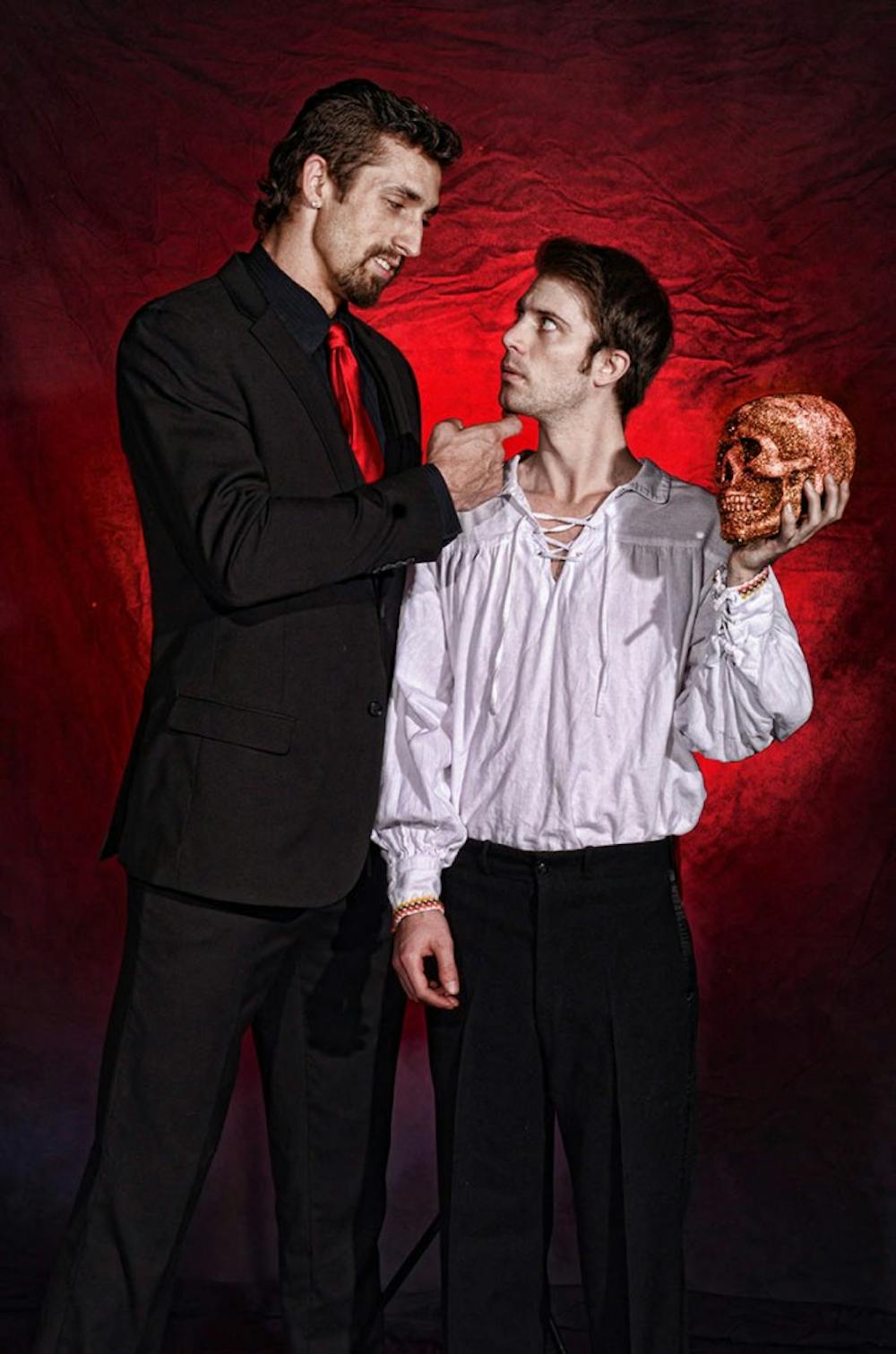Any play being taken on by a theater company called the Nearly Naked Theatre is bound to be rife with eroticism, obscenity and profanity. "The History of the Devil" was no let down.
The Nearly Naked Theatre, a resident company of the Phoenix Theatre next to the Phoenix Art Museum, is a donation based non-profit that brings nontraditional plays to the stage. It takes pride in being completely censorship-free and creating a liberal space to stage experimental plays.
It was the perfect stage for the Clive Barker play "The History of the Devil," which has a run time of about three hours.
After I arrived and received my tickets, I proceeded through a garden and past a bar to find the entrance to the theater. It was smaller than I expected but created a strong sense of intimacy between the audience and the actors.
Before the play started, director Damon Dering, took to the stage to deliver a foreword. Displaying the liberalism of the theater, he joked about his potty mouth in between the heavy use of profanity. He warned the audience that if anyone was easily offended, this play was the wrong one for them.
After Dering took a seat among the audience, the lights dimmed and the scene opened with a masked actor, made up to resemble a demon, screeching out lines. The costumes were minimal and ranged between lawyer attire to Greek togas.
For the demons, very basic outfits were used to great effect. The masks were sometimes open-faced, only covering the eyes and chin, which allowed the audience to see the mouth and facial movements of the actor.
David Nelson made for an interesting Devil. He was dressed in '80s rocker garb, with sunglasses, boot-cut jeans and a mullet. He was gigantic and lean, towering 6 inches or more over the rest of the cast. Because of his incredibly long limbs and height, he consumed the attention of the audience with his steady physical movements.
The play's form jumped between scenes of the trial and flashbacks of the Devil's deeds as witnesses were called in to testify against him.
Not to fall short of its name, the Nearly Naked production included nudity, eroticism, profanity and ribaldry.
One of the opening scenes of the play includes the lights cutting and the stage turning black. You can see the actors shuffling around quickly, although it is hard to expect the full-frontal nudity that will come next.
After a speedy undressing of only about 30 seconds, the lights resume and the audience is presented with Nelson standing on top of a pedestal flanked by a woman and a man, all of whom are naked.
Clive Barker's excuse for writing this scene is that they're angels and, of course, angels don't wear clothes.
Homo-eroticism is a major plot element as well. Sodomy is a popular jest throughout the play, and anyone familiar with sexuality in ancient Greece can see how this idea is ran with during the segment involving a Grecian and his slave.
These themes will not come as a surprise to anyone who is familiar with Barker, a writer who is known for his scripting of movies such as "Hellraiser" and other horror genre films, as he is openly gay and known for his blatant expression.
Overall, "The History of the Devil" was entertaining and kept me watching for the entire run time. You could tell the actors took their roles seriously and the acting was often without faults.
Besides Nelson, Krystal Pope was impressive using her body language to create her character even when not delivering lines. I would recommend "The History of the Devil" to anyone who may be interested in seeing a comedy about the devil staged by a censorship-free independent company.
Reach the reporter at lsaether@asu.edu or follow @looooogaaan on Twitter.
Like The State Press on Facebook and follow @statepress on Twitter.




